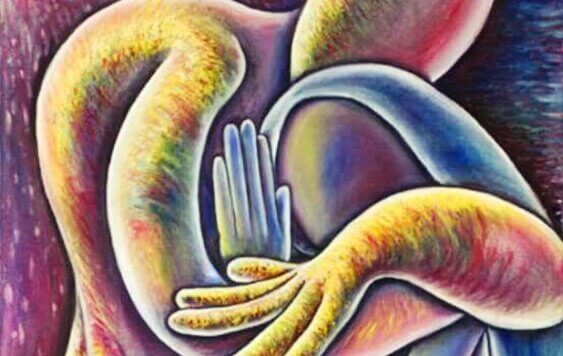The word compassion has been devalued. Today, it is associated with charity or piety, as well as with the word “self-pity”, which evokes the idea of victimization. Nothing further from the essence of these concepts that, far from promoting a diminished vision of the other or of themselves, exalt these looks. That’s why today we want to talk about compassion as a form of therapy.
This therapy, as the name suggests, is a type of therapeutic intervention that sees compassion as a way to improve the situation of many people who suffer from it, and is especially suitable for people who are very critical of themselves and others.
- The most interesting thing about this innovative therapy is that its effectiveness has been scientifically measured in the laboratory.
- Passion has been shown to be learned and practiced.
- It has also been proven that in doing so our brain changes and improves.
- Everything indicates that having compassion increases serenity.
- Joy and motivation in different areas of life.
“Every true love is compassion and any love other than compassion is selfish. “Arthur Schopenhauer.
The experiment was conducted at the Center for Investigating Healthy Minds at the University of Wisconsin in the United States and then published in the journal Psychological Science. The study separated a group of volunteers and encouraged training in a type of meditation called “compassionate meditation. “. ” o”Tonglen. “
This type of meditation uses a technique based on the identification and understanding of pain in other humans, this technique is combined with breathing exercises, when you inhale you visualize the suffering of others and internalize yourself. others are visualized and irradiated.
In the experiment, participants were asked to imagine a time when someone was suffering and would like to eliminate the pain. Could they help you with phrases like “you can free yourself from pain,” “you can be happy”?And others of the same type. First, they performed this exercise thinking about their relatives and then with strangers, finally, they must do so with someone with whom they have a conflict.
Researchers monitored the participants’ brains using a functional MRI, this was done before and after training, so it was found that there are brain changes in volunteers, in particular, there was an increase in activity in the parietal cortex and other areas, which has made it clear that empathy, compassion and kindness can develop , like a muscle.
It is common for a person who is extremely critical of others to criticize himself; The opposite also happens. These are cases in which the individual focuses excessively on his ego, this prevents him from feeling compassion for others, but also for yourself. The individual suffers a lot. There is immense pride that prevents you from feeling life from a relaxed and positive perspective, so each event becomes a battle in which the important thing is to win.
Compassionate therapy has the ability to feel the suffering of others and wish them well; in the same way, it shows that this exercise must be applied as well and, above all, in itself. Feeling sorry for yourself is not complaining about yourself or yourself. crying for feeling inferior or even helpless. It’s about learning not to blame yourself for our mistakes, failures, or mistakes; not to judge yourself harshly with the advantage of knowing the outcome.
Orientals have practiced compassion for themselves and others for thousands of years. Passion as a form of therapy echoes Buddhist principles, but also elements of neuroscience. In the experiment above, it has also been shown that during compassionate exercise, the brain triggers release. of oxytocin, the so-called “happiness hormone”. Changes also occur in the insular lobe, hippocampus, and pituitary gland. This creates a greater sense of tranquility, security and well-being.
Today, there are many messages around the world that encourage us to act on competition and success, and it has become a huge burden for many people. It’s something that can eventually outperform the individual and make them feel anxious and depressed. Passion as a form of therapy is a call to regain goodness as the greatest human value, and understands that goodness must begin in the treatment that each person gives himself.

